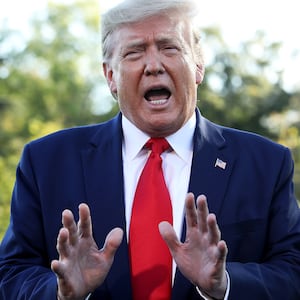When I was in grade school, my history teacher asked us, “What is the most perfect form of government?” It was kind of a trick question, because when most of us named our American democracy as the correct answer, he said no. He told us that the ideal government is a benevolent dictator. He even put it in a test, and we all answered the way he wanted us to, just to get a good grade.
My father talked a lot about government at home—that it had gotten too big and took too much of people’s money. So, one night at the dinner table, I told him what I’d learned in school—that the most perfect form of government is a benevolent dictator. He gave me his one-eyebrow-raised look, his mouth turned hard, and he said: “That is not true. Dictators are never benevolent, that’s why they’re dictators. They want to control people, hold onto their own power, and not allow people to be free. America has the most perfect government.”
He added, “You are studying the Constitution, right?” I assured him we were.
I knew a lot about dictators when I was a kid. My parents had a friend who had numbers tattooed on her arm. She was at our home often, and I knew the story about how she was put into a concentration camp with her family when she was a child, and only she and her mother survived. I had seen photographs of Nazi soldiers herding Jewish people into cattle cars. I asked my father once why the people didn’t turn and trample the soldiers—they outnumbered them by a lot. He told me they were too afraid. When people are frightened, he said, anything can be done to them.
Almost on a daily basis now, we hear about how frightened people are of Donald Trump—Republican Senators, people working in the White House in various capacities, apparently many in the Department of Justice. They fear his wrath and his insatiable appetite for revenge. Those of us who are horrified at the dismantling of our democracy fear him because he may very well be destroying more than we can ever rebuild.
We run the risk, it seems to me, of forgetting what the presidency is supposed to be. We are so bombarded with the crudeness of Donald Trump, his cruelty and wanton disregard for the tenets of our Constitution, that the image of a president who has a moral compass, reveres our democracy and follows its laws is fading from our collective psyche.
I read once that President George W. Bush said in an Oval Office meeting about some issue, “What do we do if we just want to do the right thing?” That seems like a foreign language now.
We will never save this democracy until we remember what it feels like to have as our president someone who puts democracy above personal, selfish interests.
In his second inaugural address, my father said: “History is a ribbon, always unfurling; history is a journey. And as we continue our journey, we think of those who traveled before us… We hear again the echoes of our past: a general falls to his knees in the hard snow of Valley Forge; a lonely president paces the darkened halls, and ponders his struggle to preserve the Union; the men of the Alamo call out encouragement to each other; a settler pushes west and sings a song, and the song echoes out forever and fills the unknowing air. It is the American sound. It is hopeful, big-hearted, idealistic, daring, decent, and fair.”
We need to remember who a president is supposed to be, and we do that by remembering who we are supposed to be.





